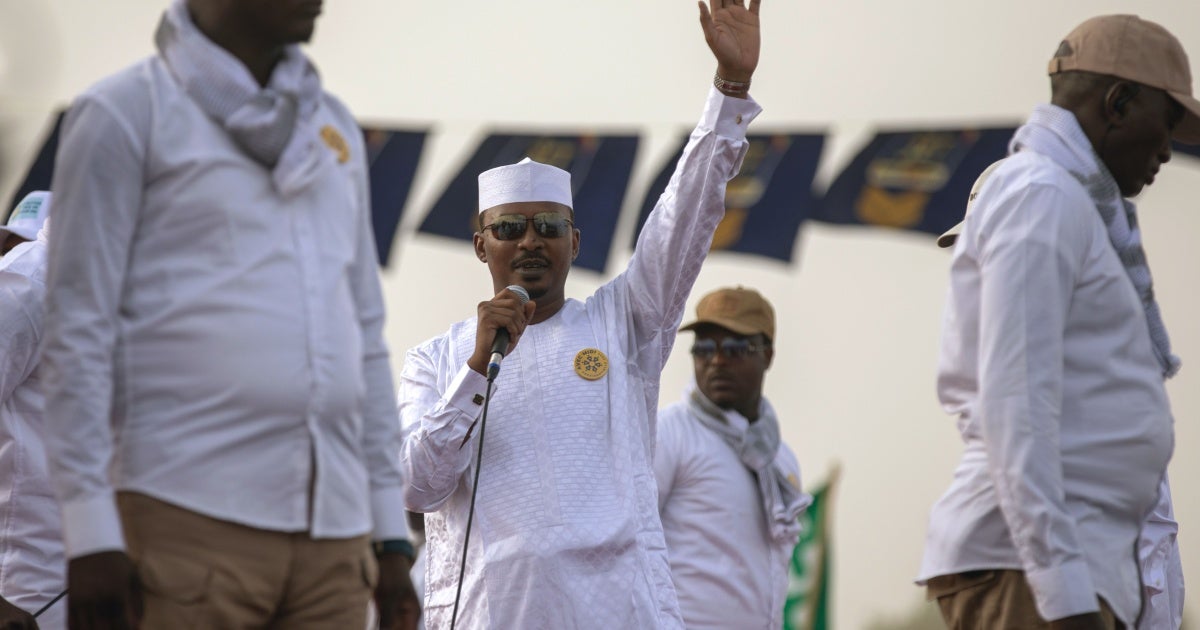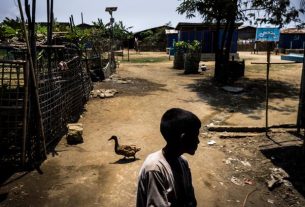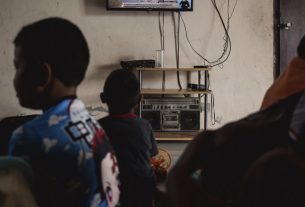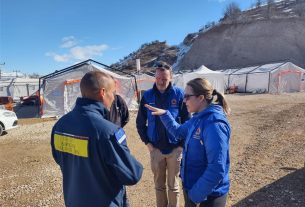(Nairobi) – The political transition in Chad ended with violence as at least 9, and possibly more, civilians were reported killed by celebratory gunfire from soldiers and civilians, Human Rights Watch said today. On May 9, 2024, the National Election Management Agency (Agence nationale de gestion des élections, ANGE) announced that the interim president, Gen. Mahamat Idriss Déby, had won the May 6 election outright, citing provisional results. His main challenger, Prime Minister Succès Masra, declared himself the winner in a separate announcement on social media.
The run up to the election and the days around the vote were violent. On February 28, members of the security forces killed Yaya Dillo, the president of the Socialist Party Without Borders (Parti socialiste sans frontières, PSF) and a potential election opponent, during an attack on the party’s headquarters in N’Djamena, the country’s capital. Human Rights Watch has called for an independent investigation into his killing. On the day of the vote, violence broke out in the southern city of Moundou and a man attempting to vote was killed. After the results were announced, celebratory gunfire by security forces and civilians broke out across N’Djamena, killing at least nine people according to local media reports.
“President Déby has consolidated his power as the transition period has now ended,” said Lewis Mudge, Central Africa director at Human Rights Watch. “As the result has already been contested, an investigation into the violence before and after the vote should be paramount.”
The election authorities announced that Déby won 61.03 percent of the vote, well over the 50 percent needed to avoid a runoff. The authorities announced that Masra won 18.53 percent.
While international organizations, like the International Organization of la Francophonie (Organisation internationale de la Francophonie, OIF), made some attempts to observe the election, they did not have the capacity to systemically monitor the vote across the country. The interim government denied national civil society organizations funded by the European Union the accreditation to monitor the election. Masra has reported threats against him and his supporters since the vote.
On March 23, the civil society platform Wakit Tamma, which had been instrumental in leading pro-democracy protests, had called for a boycott describing the election as a “masquerade” aimed to support a “dynastic dictatorship.”
Former President Idriss Déby died in April 2021 in fighting with an armed group, and the military gave power to his son, Mahamat Idriss Déby, in a transition that violated the constitution. Mahamat Déby’s government violently suppressed continuing protests demanding a return to civilian rule, culminating in a bloody crackdown on October 20, 2022. On that day, thousands took to the streets in N’Djamena and several other towns in southern Chad, including Moundou, Doba, and Sarh, to protest the transitional government’s decision to extend a transition period. The constitution was replaced in a referendum in December 2023 by a new one enabling Mahamat Idriss Déby to run for president.
In the months leading up to the vote, the political space tightened for Masra’s party Les Transformateurs (The Transformers, in English). Despite an arrest warrant issued for Masra, he was named prime minister in January as part of a political deal.
Dillo, the president of the Socialist Party Without Borders, was considered Déby’s leading political opponent. The two men are reported to be cousins from the same Zaghawa ethnic group. Dillo had been widely reported to be preparing to run for president though he had not announced his intention. An independent investigation into Dillo’s death should be a priority for the Déby government, Human Rights Watch said.
On election day, a group of men tried to access a polling place in Moundou. When they failed to produce identification cards the men were asked to leave the center. A witness told Human Rights Watch that the men then started shooting in the area around the polling site. “It was chaos, and a man was hit,” the witness said. “The military and the gendarmes came, but by then the attackers had left and the officials said they did not have any idea as to whom they may be.” The victim, Enock Neratar, was shot in the stomach while waiting to vote and died on the spot. He was buried on May 9.
While the ANGE, the national election body, had an additional 12 days to announce results, it released the provisional tally on May 9. In his speech on social media just before the results were announced, Masra claimed victory and called on security forces and his supporters to oppose what he deemed an attempt to steal the vote. To the Chadian people he said, “Don’t let your destiny be stolen,” however, Masra reiterated that any mobilization should be “with a spirit of peace.”
Human Rights Watch reviewed multiple videos and photos from N’Djamena on May 9, which show large numbers of Chadian military taking up key positions across the city, and multiple videos of soldiers firing off their weapons to celebrate Mahamat Déby’s victory. Local media reported that the shooting across the capital killed at least 9 civilians and wounded 60 others.
Some of the shooting was concentrated in neighborhoods considered strongholds for Les Transformateurs party. “These shots are a threat to us, they are sending us a message: if you take to streets to protest, we will kill you,” one member of the party told Human Rights Watch. On their Facebook page, Les Transformateursannounced that there was heavy firing outside of Masra’s residence in Gassi neighborhood, 7th arrondissement, in a heavily populated neighborhood outside the city center.
“The lead up to this election has been fraught with violence and civil society, journalists, and opponents fear that some Chadians, frustrated with the outcome of the election, may take to the streets,” Mudge said. “President Déby should instruct the security services unequivocally and publicly not to resort to violence against protesters, and warn them that those who do will be held accountable and met with severe sanctions.”



